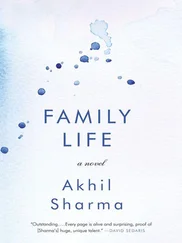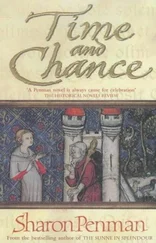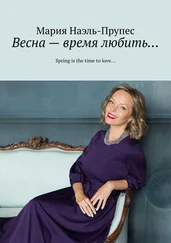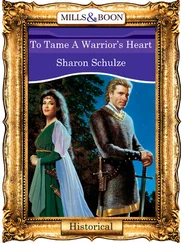1 ...6 7 8 10 11 12 ...17 And my hair! No shower, no dryer, no mousse, no straighteners. All I could do was comb it. Great.
After that grim start, the day got no better.
My usual breakfast was yoghurt and banana. Here it was porridge and boiled eggs. Compulsory. By the time I’d eaten it I felt so weighed down I thought I’d never lift myself off the chair. And the coffee … the coffee came from a bottle that looked like gravy browning and tasted like it too.
To make it worse, because Mrs Brown worked mornings in a post office, Peggy and I, who apparently didn’t have to be in work until half an hour later, had to do the washing up.
‘You can wash,’ said Peggy, handing me the porridge pan, with its burnt-on bits. ‘It makes sense for me to wipe up and put away because you don’t know where anything lives.’
‘You could show me,’ I said, but knew as I said it, there wasn’t much point.
Do you want to know what I think of the 1950s so far? Well porridge pans really piss me off. Non-stick hasn’t been invented yet. Neither has washing-up liquid, just disgusting green soap. You have to scrape the congealed porridge off with a knife and then, the real horror is when you have to scoop great blobs of it out of the plughole. That is so disgusting.
And Peggy. Peggy is a pain. Pisses me off even more than porridge pans. I am trying really hard to be nice to her and smile a lot (for the cameras, which I haven’t found yet) but it’s really tricky.
‘Are these clothes all right for work, Peggy?’ I asked.
‘Very suitable,’ she said.
‘Do your clothes make you itch?’
‘Of course not,’ she said, but with such a filthy expression that I’m sure her knicks were stuck up the crack of her bum too. ‘Come on. Time to get a move on.’
She handed me an Oxo tin. An Oxo tin? What was I meant to do with that? I must have looked blank because she said, ‘It’s your sandwiches, for your dinner.’
Off we went. I don’t know how they’re doing it, but it’s very clever. Of course, Peggy led the way. (The more I think about it, the more she must be part of the team setting the challenge.) We went through some narrow streets and across a market square. (It’s clearly a film set.) There was very little traffic, just a few old cars. ( The sort they always have in period films.) And a delivery boy on a bike. (They always have that as well.) And there was a milkman with a horse and cart. (Which I thought was taking it a bit far really, but that might have been the one with the camera in it, so I gave the horse an extra nice smile.) The shops were small with crowded little windows, a bit drab, but the streets were very clean. No pizza boxes or burger trays. (Shows that it must have been all pretend.)
‘Is it far to The News ?’ I asked, wondering how we’d get to the industrial estate.
‘No,’ she said. And that was it. No chatty girly conversation. In fact, nothing. Right, thank you, Peggy. But I remembered my winning ways and smiled and tried again. Tricky, because she was walking quite fast and I was struggling to keep up, and not just because of the shoes.
‘Have you worked there long?’
‘Five years.’
‘So what’s the editor like then?’
At this she went a bit pink and turned around to face me. ‘He’s a wonderful man,’ she said vehemently. ‘Wonderful!’
Bit of a giveaway wouldn’t you say?
But now we were at The News. Not just off the ring road. It was right in the centre of town. And the funny thing was that it looked just like the old pictures we have hanging at reception in the industrial estate. A really old timbered building, with leaded windows. There were some big gates at the side, leading into a yard where I could see old-fashioned delivery vans. I don’t know how they did it, but it was very clever.
As soon as we walked in through the door, Peggy changed character and was as nice as you like. Smiles and ‘Good mornings’. She led the way upstairs.
Well, it was a newspaper office, but not as I knew it.
The place was chaos. A warren of small rooms, each one crowded with heavy wooden desks piled high with papers. The windows were small and grubby, and almost obscured by heaps of papers and files. There were papers everywhere. Piles of yellowing newspapers, on the floor, in corners, on windowsills, blocking doorways. Health and safety would have had hysterics. Especially as there was also a thick cloud of smoke. Everyone seemed to be smoking.
One stray fag end in that lot …
Peggy was leading the way along a narrow corridor of bare and battered floorboards. Then she led me into an outer office, hung up her coat and knocked reverentially on an inner door. ‘Good morning Mr Henfield.’ She was almost simpering. ‘I’ve brought Rosie Harford.’
Richard Henfield looked exactly like his photograph. That was a nice touch, I thought, well researched. Middle-aged, specs, moustache and pipe. Nice eyes, weak chin. ‘Ah yes, you’re with us for a few weeks.’
‘Apparently,’ I said with a winning smile. There must be a camera in here.
‘So tell me what you’ve done.’ He leant back in his chair and stared at me. It wasn’t a particularly nice stare.
‘Well, after my degree, I did a post-graduate diploma in journalism and worked on a weekly paper for a while. For the last few years I’ve been a general reporter, then on the business desk, and now I’m a features writer, specialising in social and consumer issues.’ Smile again.
‘Well, aren’t you a clever little girl,’ he said, gazing at my boobs.
Really! My fingers itched to slap his pompous, patronising, sexist face. But smile, Rosie, smile. I smiled.
‘Better see what you can do then,’ he said, standing up to put his arm around my shoulders – not nice, he smelt of stale tobacco and sweat and half-digested meat. Didn’t the man shower? – and led me back along the corridor and into one of the crowded smoky rooms, where an oldish man in a trailing overcoat was sitting with his feet on the desk reading a paper, while a woman talked on the tele-phone. Two other men were picking up their coats as if on their way out.
I ostentatiously removed myself from Henfield’s arm. That smell was taking reality TV a bit too far.
‘Is Billy about?’ asked Henfield.
‘Assizes,’ said the man, hardly lifting his eyes from the paper. Seeing me, his beady eyes lit up too and he gave me and Henfield his attention.
‘OK Gordon,’ Henfield said. ‘This is Rosie. She has a degree and a diploma and knows all about business and social issues.’ He said it in a sarcastic, mocking tone.
‘Very fancy,’ muttered the woman behind him, putting the phone down and lighting a cigarette.
‘She’ll be here for a few weeks and no doubt she has many talents to reveal,’ he leered. ‘And a lot to show us.’ He and Gordon gave each other knowing glances and then both looked me up and down, when, thank God, Peggy came along simpering, ‘There’s a phone call for you Mr Henfield,’ and off he went.
‘Smarmy bugger,’ muttered the woman. Promising. Then looking at me, she added, ‘I’m Marje, by the way. Well, let’s see what you can do then.’
‘Anything,’ I said, all keen and eager and desperate to get stuck into a decent story.
‘Kettle’s over there,’ said Marje. ‘No sugar for me, two for him’ – pointing at Gordon who’d gone back to reading the newspaper – ‘and the cups need washing. Down the corridor at the very end and don’t wait for the hot water, because there isn’t any.’
Did I have a sign saying ‘skivvy’ stuck to my forehead?
Gordon was the News Editor. When he’d stopped eyeing me up and down he had decided I was barely worth considering. ‘You’d better follow Marje around for now,’ he said as he took his tea without a thank-you. ‘She can show you the ropes. There’s a couple of golden weddings in the book. You should be able to manage those between you.’
Читать дальше












